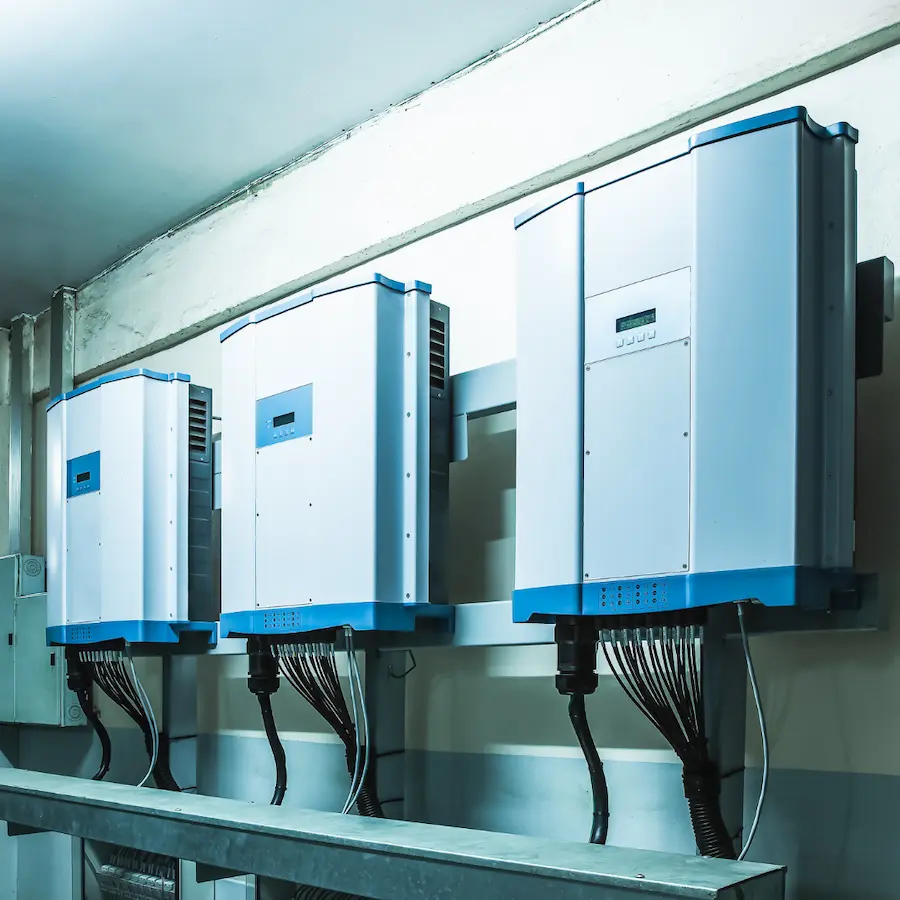Hotels and restaurants usually have a very high energy demand since they use huge machinery like freezers, refrigerators, ice machines, and more. From procurement to distribution, whole processes are run on high energy. But that sort of energy consumption could be very costly and environmentally heavy. Have you ever wondered how the food service industry could embrace sustainable measures like solar power? Imagine reducing your carbon footprint as your business blooms. Well, in this article, let us serve you a heaping portion of the benefits of solar energy in the food service industry – like sustainable business reputation and cost savings. But hey, as with any other thing in the world, solar also has its challenges, we will explore those too. So whether you are a foodie, environmentalist, or just curious about innovative energy solutions, let’s dig in! `
How does it work?
Sunlight is absorbed by the solar panels installed on rooftops and then converted into electrical energy through photovoltaic mirrors/panels that are used to concentrate solar radiation. This power can be used to generate electricity stored for later use in thermal storage or batteries. The installation process is quite similar to laying tiles and is possible for rooftops of any size.

Benefits of Solar in the food service industry:
Cost Savings: In the food service industry, where energy consumption is substantially high due to refrigeration, cooking and lighting, the adoption of solar energy could be quite compelling. Though installation costs of solar are on the higher side, it is much more cost-effective when it comes to long-term operations. The rates can be lowered up to 50% of your normal electricity bills.
Protection from Power Outages: Businesses suffer major losses due to power outages because they run the risk of food spoilage and equipment not working when needed. This can cause significant losses if frequent. Solar energy on the other hand is constant and can also be stored for days when the days are not so bright. By not depending on traditional electricity, your business can enjoy being energy-independent.
Environmental Impact: Solar energy is a renewable and sustainable source of power that leaves no carbon footprint. By adopting it, your business can benefit by producing a lower carbon footprint compared to traditional power sources and also help in mitigating the climate crisis.
Tax Incentives: The government is strongly pushing renewable and sustainable energy sources for businesses and individuals. To encourage people to adapt to such resources, the government has provided certain tax incentives for the installation of solar energy panels.
Positive Brand Image: Incorporating solar energy can enhance your business image to an environmentally responsible and sustainable. This has considerable benefits as today’s consumer consensus has shifted to being more responsible and conscious about the environment. It would resonate with consumers who seek out eco-friendly businesses and also be a plus with other consumers, attracting a larger consumer base.

Community Outreach: Having solar panels in your establishment can be a good message for the community. As businesses are also part of society, they can also initiate conversations and bring change.
Reliability and Low Maintenance: Solar panels are quite reliable as they only need the initial installation and occasional cleaning.
Challenges of Solar in the food service industry:
Initial Splurge: The installation costs of solar panels and energy systems can be quite expensive and out of reach for small businesses. This could become a huge factor in not opting for this energy solution for a lot of humble businesses.
Maintenance: Though it only requires occasional cleaning, this can also become another checklist on your schedule.
Intermittent Availability: Solar energy is generated from sunlight and days when there is none or a short amount of it can hammer your generation amount, this makes it intermittent in nature. To combat this you may have to invest in energy storage systems which is another addition to your bill.

Intermittent Availability: Solar energy is generated from sunlight and days when there is none or a short amount of it can hammer your generation amount, this makes it intermittent in nature. To combat this you may have to invest in energy storage systems which is another addition to your bill.
Space Requirement: Solar panels need a lot of space to install. And these spaces must be getting ample sunlight. So for establishments that do not have such spaces, solar cannot be an option.
When businesses, particularly those in the food service industry, contemplate alternate energy solutions like solar, it’s imperative to align these choices with their specific needs and constraints. A meticulous assessment of the pros and cons is crucial. Despite initial challenges such as installation costs and maintenance, solar energy presents compelling, long-term advantages for both businesses and the environment. It stands as a sustainable choice well worth consideration. For expert guidance in implementing sustainable energy solutions like solar, partner with HPG Consulting, a prominent commercial kitchen consultant. Take a decisive step toward a greener future with their expertise